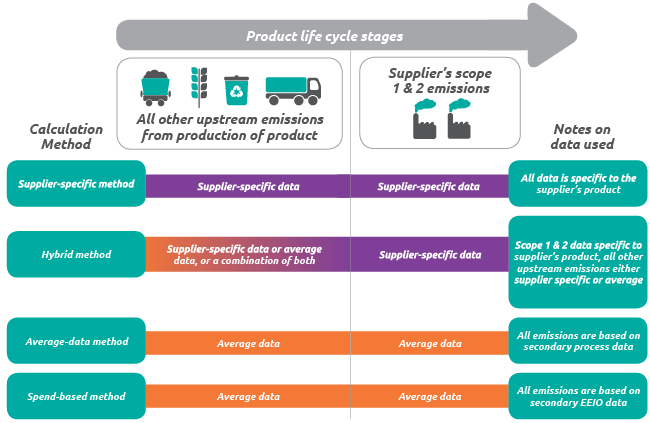Achieving decarbonisation targets
Road to decarbonisation
Demant’s SBTi targets are defined at group level and set 2019 as the base year. Therefore, the 2030 goal of a 46% reduction of the combined scope 1 and 2 emissions, as well as the goal of a 46% reduction in scope 3 are measured against the emission levels recorded in 2019. The scope 3 baseline emissions were calculated using a spend-based approach. The spend approach calculates emissions using general emission factors per monetary unit (CO2eq/$) for a specific field and country. This calculation method results in data with low transparency and accuracy. Demant has experienced substantial growth since this commitment. Thus, the spend-based approach and the emissions derived from it no longer accurately reflect our scope 3 status. Consequently, the extent of decarbonisation required to achieve our goals must be reevaluated.
This is where Sustain comes into the picture. The Hearing Aids business area has taken its first steps in collecting higher quality 2023 supplier specific carbon data. Based on this data, we will recalculate the 2023 emissions and develop a decarbonisation strategy to reach our climate targets. For both short and long-term perspectives, collaboration is key to success. We want to work closely together with suppliers through workshops to identify hotspots and develop individual decarbonisation strategies.
![]()

The Pathfinder Framework
The Pathfinder Framework, is a standardised approach to measuring and reducing value chain emissions, developed by the World Business Council for Sustainable Development (WBCSD). The framework is a comprehensive tool designed to standardise the calculation and exchange of greenhouse gas (GHG) emissions data across value chains. By providing clear guidelines and methodologies, Pathfinder enables businesses to accurately measure, report, and share product-level emissions information. This consistency is crucial for identifying and reducing carbon footprints, fostering transparency, and accelerating collective efforts toward decarbonisation. The framework's adoption is essential for companies aiming to meet climate goals, enhance supply chain collaboration, and demonstrate leadership in sustainability.
Demant has therefore selected this framework to gather carbon emissions data across its supply chain.
Pathfinder Framework Version 2.0
Types of data
For the Hearing Aid business area to accurately restate its 2023 emissions and identify hotspots with our suppliers, we need to collect detailed, high-quality CO2e data and aim to minimise the use of spend-based data.
Thus, we are focusing on collecting higher quality CO2e data, known as supplier-specific data. To achieve this, Demant is adopting the Hybrid Method (see below). This approach involves collecting supplier-specific data for scope 1 and 2 emissions and using a combination of supplier-specific data and averaged data from approved databases for scope 3 emissions.

![]()
Source: https://ghgprotocol.org/sites/default/files/standards_supporting/Chapter1.pdf